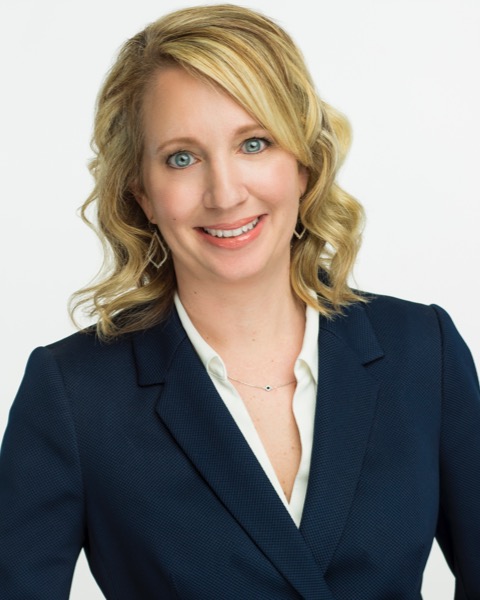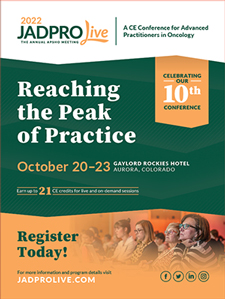Back


Clinical Posters
JL1012C: Empowering Patients With the Advanced Practitioner as a Vital Member of a Novel, Independent, Oncology Advisory Service
Saturday, October 22, 2022
10:00 AM – 11:00 AM ET

Has Audio

Jillian Hunt, MSN, APRN, FNP-C, AOCNP (she/her/hers)
Director of Clinical Operations
Cincinnati Cancer Advisors
Cincinnati, Ohio, United States
Poster Presenter(s)
BACKGROUND
Patients with cancer face a significant amount of stress revolving around diagnosis, treatment options, and emotional/financial impact. Both academic and community oncology practices have increasingly less time to spend with patients, potentially resulting in unanswered questions and increasing anxiety.
The purpose of this program is to provide a supplemental oncology advisory service that reduces stress and anxiety, increases quality of life, and facilitates superior patient outcomes. The team composition of MD-AP-RN was intentionally designed to take advantage of each discipline’s distinct areas of expertise. One oncology AP specific skillset is supportive care pertaining to toxicity management and psychosocial care. These traits combined with the MD’s and RN’s skills, provide holistic oncology care and added value without adding financial distress.
METHODS
This program was developed after identifying deficiencies in the care of cancer patients within the local community. Most advisory/second opinion programs see patients with the intent of assuming their care. This program flourished from the idea of supplementing the care of the current treating oncology team, from an advisory/non-competitive approach, without cost to the patient, in an attempt to improve the level of cancer care across all systems in the area. Patients are seen in consult simultaneously by the MD/AP/RN team. A comprehensive history and full head-to-toe physical are completed in addition to a review of records from time of diagnosis. Patients are given a 2-hour block to ensure proper understanding of their diagnosis and time to ask all questions. During this time the AP assesses psychosocial cues, identifies potential toxicities, educates on potential treatment options, supplements discussion of cancer biology to ensure patient comprehension, and aids in gathering history, all while performing a needs assessment. After the visit, a review of the current literature and clinical trial search (when applicable) is completed. A formal consult is sent to the primary team and the patient and the plan is directly communicated by phone between clinicians. During this time and ongoing, the AP serves as a resource to the patient.
FINDINGS
Goal achievement was assessed by surveys sent to both the patient and primary oncology team. From 01/2020-01/2022, 56% (300/534) of surveys were returned.
Results from patients following their consult, 1=lowest, 5=highest:
Confidence in recommendations: 4.67/5
Confidence in current plan of care: 4.76/5
Relationship with treating physician(s) strengthened: 4.0/5
Overall value of consultation: 4.96/5
CONCLUSIONS
The data paralleled the positive impact our care model had on patient experience. These results stress the importance of the APs role in an advisory program.
PROPOSAL
AP to develop tool that prospectively measures the impact of the advisory consultation on disease management and patient outcomes.
INNOVATION
Our experience indicates the value of a non-competitive oncology advisory program that supplements the care of the primary oncology team. The program identified a need in the care of the oncology patient and developed a novel strategy to meet that need without adding financial burden.
Patients with cancer face a significant amount of stress revolving around diagnosis, treatment options, and emotional/financial impact. Both academic and community oncology practices have increasingly less time to spend with patients, potentially resulting in unanswered questions and increasing anxiety.
The purpose of this program is to provide a supplemental oncology advisory service that reduces stress and anxiety, increases quality of life, and facilitates superior patient outcomes. The team composition of MD-AP-RN was intentionally designed to take advantage of each discipline’s distinct areas of expertise. One oncology AP specific skillset is supportive care pertaining to toxicity management and psychosocial care. These traits combined with the MD’s and RN’s skills, provide holistic oncology care and added value without adding financial distress.
METHODS
This program was developed after identifying deficiencies in the care of cancer patients within the local community. Most advisory/second opinion programs see patients with the intent of assuming their care. This program flourished from the idea of supplementing the care of the current treating oncology team, from an advisory/non-competitive approach, without cost to the patient, in an attempt to improve the level of cancer care across all systems in the area. Patients are seen in consult simultaneously by the MD/AP/RN team. A comprehensive history and full head-to-toe physical are completed in addition to a review of records from time of diagnosis. Patients are given a 2-hour block to ensure proper understanding of their diagnosis and time to ask all questions. During this time the AP assesses psychosocial cues, identifies potential toxicities, educates on potential treatment options, supplements discussion of cancer biology to ensure patient comprehension, and aids in gathering history, all while performing a needs assessment. After the visit, a review of the current literature and clinical trial search (when applicable) is completed. A formal consult is sent to the primary team and the patient and the plan is directly communicated by phone between clinicians. During this time and ongoing, the AP serves as a resource to the patient.
FINDINGS
Goal achievement was assessed by surveys sent to both the patient and primary oncology team. From 01/2020-01/2022, 56% (300/534) of surveys were returned.
Results from patients following their consult, 1=lowest, 5=highest:
Confidence in recommendations: 4.67/5
Confidence in current plan of care: 4.76/5
Relationship with treating physician(s) strengthened: 4.0/5
Overall value of consultation: 4.96/5
CONCLUSIONS
The data paralleled the positive impact our care model had on patient experience. These results stress the importance of the APs role in an advisory program.
PROPOSAL
AP to develop tool that prospectively measures the impact of the advisory consultation on disease management and patient outcomes.
INNOVATION
Our experience indicates the value of a non-competitive oncology advisory program that supplements the care of the primary oncology team. The program identified a need in the care of the oncology patient and developed a novel strategy to meet that need without adding financial burden.

